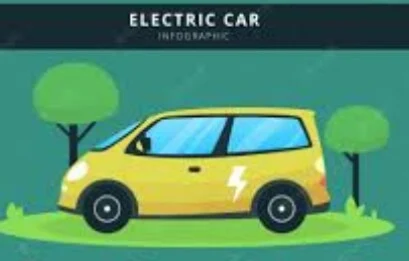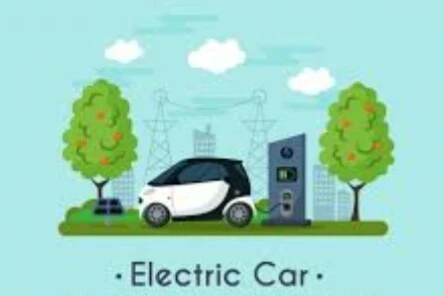Electric Vehicle
Finland's journey towards electric Vehicle
Finland, a country known for its commitment to sustainability and technological innovation, is making significant strides in the realm of electric vehicles (EVs).
With a strong emphasis on renewable energy and a supportive policy framework, Finland is poised to become a leading player in the electric mobility revolution.
In this article, we explore Finland's journey towards electric mobility, highlight the key factors driving its success, and discuss the profound environmental and economic benefits of electric vehicles in the country.
Finland's Journey Towards Electric Vehicles
| Year | Key Event or Milestone | Impact |
|---|---|---|
| 2010 | Launch of the electric car campaign "Kaasua sähköllä" (Go Electric) | Increased awareness and interest in electric vehicles among Finnish consumers. |
| 2012 | Introduction of the Electric Vehicle Subsidy | Provided financial incentives for the purchase of electric vehicles, boosting sales. |
| 2015 | Expansion of the charging infrastructure | Increased the availability of charging stations nationwide, making electric vehicle ownership more convenient. |
| 2017 | Launch of the "Electric Vehicle Roadmap" | Set ambitious targets for electric vehicle adoption and outlined strategies for achieving them. |
| 2019 | Introduction of the "Electric Vehicle Tax" | Implemented a lower tax rate for electric vehicles, further incentivizing their purchase. |
| 2020 | Announcement of plans to ban the sale of new gasoline and diesel cars by 2035 | Reinforced Finland's commitment to transitioning to electric vehicles. |
| 2021 | Launch of the "Electric Vehicle Charging Infrastructure Development Plan" | Focused on expanding the charging network, especially in rural areas. |
| 2022 | Introduction of the "Electric Vehicle Charging Fee" | Implemented a fee for charging electric vehicles in public spaces, aiming to ensure fair use of the infrastructure. |
| 2023 | Continued growth in electric vehicle sales | Finland has seen a steady increase in the number of electric vehicles on the road. |
Key Factors Contributing to Finland's Progress:
- Government support: The Finnish government has played a crucial role in promoting electric vehicle adoption through subsidies, tax incentives, and infrastructure development.
- Strong charging infrastructure: Finland has invested in a robust charging network, making it easier for electric vehicle owners to charge their cars.
- Environmental awareness: The country's commitment to sustainability and reducing emissions has driven interest in electric vehicles.
- Favorable market conditions: Factors such as cold winters and long distances between cities have made electric vehicles a practical choice for many Finnish consumers.
Challenges and Future Directions:
- Cost: While prices have decreased, electric vehicles still remain more expensive than traditional gasoline and diesel cars.
- Range anxiety: Concerns about the range of electric vehicles, especially in rural areas, may deter some potential buyers.
- Battery technology: Advancements in battery technology are needed to address range anxiety and reduce costs.
- Grid capacity: Ensuring that the electricity grid can handle the increased demand from electric vehicles is a crucial challenge.
Despite these challenges, Finland is well-positioned to achieve its electric vehicle goals and become a leader in sustainable transportation.
Government Support and Policy Initiatives:
Finland's government has been instrumental in promoting the adoption of electric vehicles. It has implemented a range of supportive policies and incentives to encourage EV ownership. These include financial incentives such as tax exemptions, reduced road taxes, and grants for purchasing electric vehicles. The government has also set ambitious targets, aiming to phase out the sales of new fossil fuel vehicles by 2030. Such initiatives have created a favorable environment for electric vehicles and have spurred consumer interest and demand.
Expanding Charging Infrastructure:
Finland recognizes that a comprehensive charging infrastructure is crucial for the widespread adoption of electric vehicles. As a result, the country has made significant investments in expanding its charging network. Finland's charging infrastructure includes a diverse range of charging stations, including fast-charging stations along major highways, urban charging points, and residential charging facilities. This widespread availability of charging infrastructure alleviates range anxiety and ensures that EV owners have convenient access to charging facilities, both at home and on the go.
Renewable Energy Integration:
Finland's commitment to renewable energy aligns seamlessly with the electrification of transportation. The country has a robust renewable energy sector, with a significant proportion of its electricity generated from renewable sources such as wind, hydro, and biomass. This integration of renewable energy into the electric vehicle ecosystem further enhances the environmental benefits of EVs in Finland. Charging electric vehicles with clean energy helps reduce greenhouse gas emissions and contributes to Finland's ambitious climate goals.
Environmental and Health Benefits:
The shift to electric vehicles in Finland brings numerous environmental advantages. EVs produce zero tailpipe emissions, reducing air pollution and improving air quality, particularly in urban areas. This reduction in emissions helps mitigate climate change and contributes to Finland's efforts to achieve carbon neutrality. Additionally, electric vehicles operate quieter than traditional combustion engine vehicles, leading to reduced noise pollution, which positively impacts the health and well-being of both city dwellers and rural communities.
The transition to electric vehicles presents significant economic opportunities for Finland. By embracing the electric vehicle market, Finland can foster innovation and stimulate economic growth. Finnish companies involved in EV manufacturing, charging infrastructure development, and battery technology are well-positioned to capitalize on the growing global demand for electric vehicles. This not only creates job opportunities but also drives technological advancements and strengthens Finland's position as a leader in clean and sustainable transportation.
Tax incentive for electric vehicle in Finland
Finland offers tax incentives and benefits for electric vehicles (EVs) to promote their adoption and reduce carbon emissions.
Here are some of the tax incentives available in Finland:
1. Vehicle Tax Exemption: Fully electric vehicles are exempt from the vehicle tax, which is based on carbon dioxide (CO2) emissions and engine power. This exemption reduces the upfront cost of purchasing an EV.
2. Reduced Annual Circulation Tax: EVs are subject to a lower annual circulation tax compared to conventional combustion engine vehicles. The reduced tax is based on the vehicle's weight and power output.
3. VAT Reduction: The Value Added Tax (VAT) rate for electric vehicles is lower than that for traditional internal combustion engine vehicles. This reduction helps lower the purchase price of EVs.
4. Company Car Taxation: The taxable benefit for company cars with zero or low emissions is lower compared to conventional vehicles. This encourages businesses to choose electric or low-emission vehicles for their fleets.
5. Free Charging: Some municipalities in Finland offer free or reduced-cost charging for EV owners in public charging stations. This helps alleviate the cost of charging for EV users.
It's important to note that tax incentives and policies can change over time, and new incentives may be introduced. For the most up-to-date and detailed information on tax incentives for electric vehicles in Finland, I recommend consulting official government sources or contacting relevant authorities, such as the Finnish Transport and Communications Agency or the Finnish Tax Administration.
Conclusion Finland's Drive Towards Electric Mobility
Finland's commitment to sustainable transportation through the adoption of electric vehicles demonstrates its dedication to reducing carbon emissions and creating a greener future.
Through supportive government policies, the expansion of charging infrastructure, and the integration of renewable energy, Finland is making great strides towards achieving its sustainable mobility goals.
The environmental benefits, improved air quality, and economic opportunities presented by electric vehicles position Finland as a forward-thinking nation at the forefront of the electric mobility revolution. As Finland continues to invest in sustainable transportation solutions, its success serves as an inspiration for other countries striving to embrace electric mobility and drive positive change in the transportation sector.


